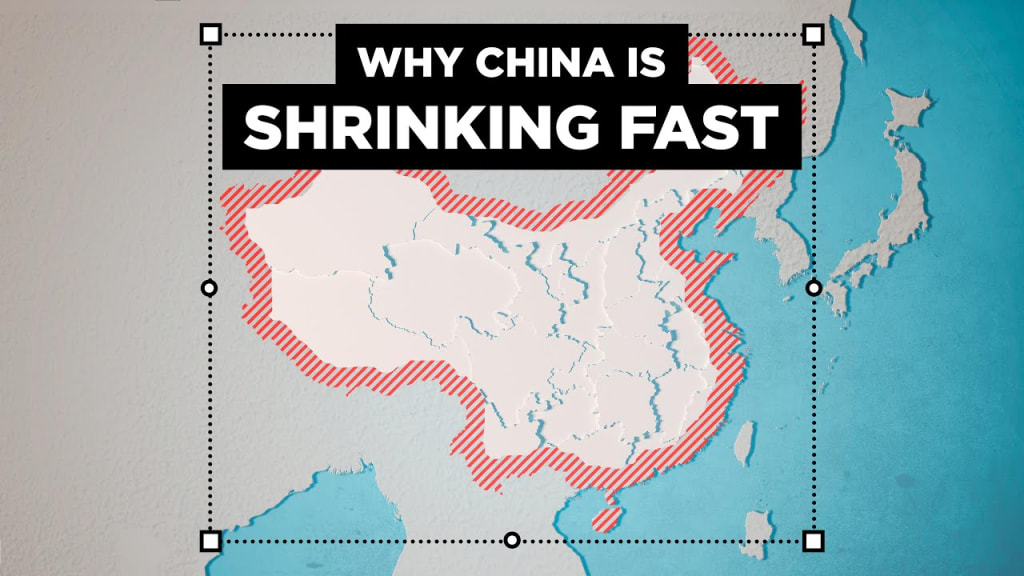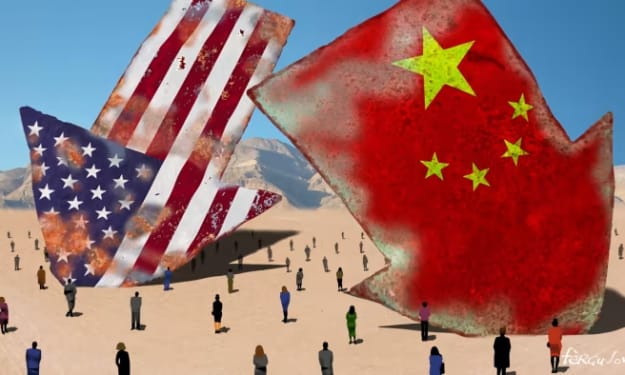China's Population Decline and Its Geopolitical Implications: A Shift in the 21st Century
The Demographic Shift: China's Population Decline and Its Global Impact

Introduction:
The year 2022 witnessed a historic moment as China, a country that had held the title of the world's most populous nation for over three centuries, experienced its first population decline since the tragic Great Chinese Famine of 1960-61. This decline, revealed by official Chinese state data, indicated a decrease of around 850,000 people, signaling a momentous demographic shift that will continue to shape the global landscape for decades to come. Simultaneously, India emerged as the new most populous country in April 2023, projecting sustained growth throughout the 21st century. This blog delves into the reasons behind China's population decline, explores its implications on the world stage, and analyzes the potential geopolitical repercussions.
China's Population Decline:
China has long been regarded as a demographic powerhouse, accounting for nearly 18% of the world's population. However, a combination of factors has led to a decline in its population growth over the years.
Historical Impact:
The impact of the 1911 revolution, which marked the end of the Qing Dynasty's rule, ushered in a period of internal turmoil and external pressures. This upheaval hindered rapid population growth, disrupting demographic trends.
Communist Era:
The rise of the Chinese Communist Party under Mao Zedong resulted in a protracted civil war that further destabilized the country. Such conflicts and uncertainties impacted family planning and contributed to the population's stagnation. One-Child Policy: In response to concerns about overpopulation, China introduced the controversial One-Child Policy in the late 1970s. Though effective in controlling population growth, this policy led to unintended consequences, including imbalanced demographics, an aging population, and a shrinking workforce.
Economic Transformation:
China's rapid economic development in recent decades brought about urbanization and improved living standards. Consequently, birth rates declined as couples prioritized careers and opted for smaller family sizes.
Geopolitical Implications:
The demographic changes in China's population have far-reaching implications for global affairs and geopolitics, altering the dynamics of power and influence.
Shifting Demographic Influence:
With China's population projected to decrease further, its once formidable demographic clout will diminish. By the end of the century, China's population might be only half the size of India's, affecting its diplomatic weight and international standing.
Rising United States:
While China's population shrinks, the United States and its allies, including NATO countries and key East Asian partners, are expected to continue growing. This demographic advantage will likely tilt in favor of the U.S.-led alliance, impacting their military and economic capabilities.
Geopolitical Scenarios:
The dwindling window of opportunity for China to assert its dominance in geopolitical matters, such as a potential invasion of Taiwan, adds urgency to strategic decisions. The People's Republic faces limited timeframes for decisive actions, shaping their foreign policy choices.
Foreign Policies:
As China and the United States grapple with changing demographic landscapes, their foreign policies will adapt accordingly. Economic competition, territorial disputes, and diplomatic engagements will all be influenced by the evolving population dynamics.
Conclusion:
The year 2022 marked a turning point in global demographics as China, the world's most populous country for centuries, experienced a population decline. This momentous shift carries profound implications for China's global influence, the geopolitical landscape, and foreign policies of major nations. As China's population continues to decline, the United States and its allies are expected to rise, potentially altering the balance of power and shaping the course of the 21st century. Policymakers and world leaders must closely monitor these demographic trends to navigate the complexities of the changing global order successfully. The impact of demographic shifts on geopolitics and international relations will be a defining aspect of the 21st century, influencing the destiny of nations and the world as a whole.
About the Creator
Rohit Singh
Software developer, part-time content creator, and tech enthusiast.
Unleashing creativity and embracing tech. Join me on this thrilling journey! 🚀






Comments
There are no comments for this story
Be the first to respond and start the conversation.